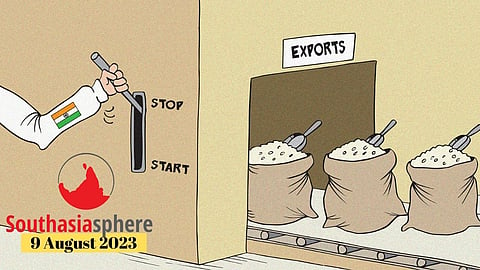The Bajaur bombing, India’s ban on rice exports, violence in Haryana and Gurugram and more
Southasiasphere is our roundup of news events and analysis of regional affairs, now out every two weeks. If you are a member, you will automatically receive links to new episodes in your inbox. If you are not yet a member, you can still get episode links for free by signing up here.
In this episode, we talk about the recent suicide bomb attack on a political rally in the Bajaur district of Khyber Pakhtunkhwa province and crossborder terrorism between Pakistan and Afghanistan, the impact of India's rice export ban in Bhutan, Sri Lanka, Nepal and Bangladesh, and communal violence in Haryana and Gurugram.
In "Around Southasia in Five Minutes", we talk about the suspension of the Indian National Congress leader Rahul Gandhi's defamation conviction, Sri Lanka's ongoing healthcare crisis, the official secrets amendment bill introduced in Pakistan, the burning of musical instruments in Afghanistan, the suspension of Kashmiri journalists' and activists' passports, and the sentencing of the Bangladesh National Party leader Tarique Rahman and his wife Zubaida.

